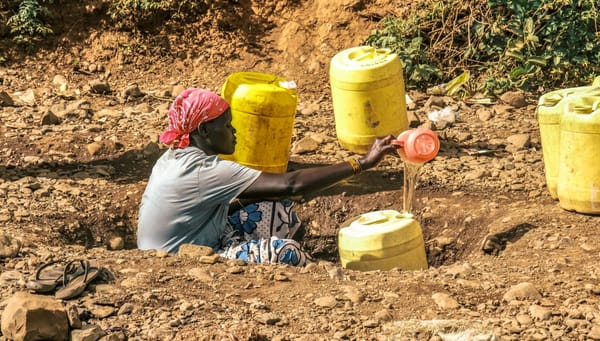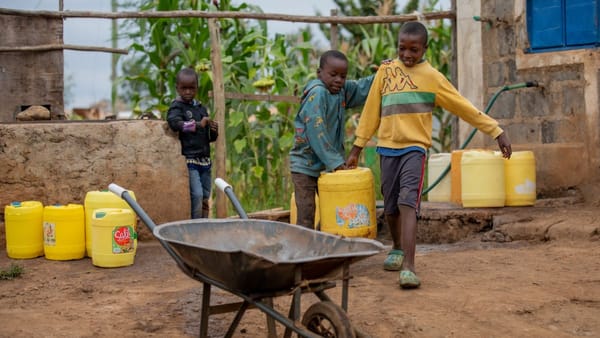The Power of Knowledge: Why Climate Change Education is Essential for Our Future
climate change education helps foster a deep understanding of the complex interplay between human activity and the planet.

The Earth's fever is rising. Every day brings fresh evidence of the accelerating climate crisis – from devastating floods and wildfires to melting glaciers and increasingly erratic weather patterns. Scientists warn that we are teetering on the brink of irreversible change, with each passing moment bringing us closer to a future defined by climate chaos. This is not a distant threat; it’s a present-day emergency that demands immediate action.
A recent report from the IPCC starkly states that human activity has unequivocally warmed the atmosphere, ocean, and land, leading to unprecedented changes in our climate system. A recent report from the Intergovernmental Panel on Climate Change (IPCC) starkly stated that, “Unless there are immediate, rapid and large-scale reductions in greenhouse gas emissions, limiting warming to 1.5°C will be beyond reach." These warnings underscore the critical importance of preparing the next generation to not only understand the climate crisis, but also to take part in creating innovative solutions.
In the face of these daunting challenges, there is a powerful and essential tool available to us: climate change education. This article will explore why providing all people with the necessary tools to understand and take part in the effort against climate change is so important for a positive and equitable future.
“Climate change education is not just about learning facts and figures; it's about fostering a deep understanding of the complex interplay between human activity and the planet."
Climate change education is not just about learning facts and figures; it's about fostering a deep understanding of the complex interplay between human activity and the planet. It's about empowering individuals to make informed decisions, build resilient communities, and drive systemic change for a just and sustainable future. It is an investment in our present and our future, and it is an area that must be prioritized.
The Urgency of Climate Change Education
The Scale of the Climate Crisis
The climate crisis is no longer a theoretical threat; it’s a tangible reality reshaping the world around us. Rising temperatures are melting polar ice caps and glaciers, contributing to sea-level rise that threatens coastal communities and ecosystems worldwide. Extreme weather events, including heatwaves, droughts, and hurricanes, are becoming more frequent and intense, causing widespread devastation and displacement. Biodiversity is collapsing at an alarming rate, disrupting ecosystems and threatening the delicate balance of nature. This is not a local issue, but a global crisis that respects no borders. It’s crucial to understand that climate change is an interconnected phenomenon, affecting all regions and all people. The impacts of climate change are global, and no community will remain untouched by the crisis. Understanding this scale is the first step to taking meaningful action.
Limitations of Traditional Education
While traditional education systems play a crucial role in shaping young minds, they often fall short in addressing the complex realities of climate change. Standard curriculums often present climate change as a purely scientific issue, neglecting the social, economic, and political dimensions of the crisis. This can create a fragmented and incomplete understanding, failing to equip learners with the critical thinking, problem-solving, and advocacy skills needed to address the challenge effectively. There is also a lack of focus on experiential learning, which means that many people are learning about climate change in a classroom without ever seeing the impacts directly. What is needed is a shift toward interdisciplinary approaches that incorporate real-world learning and emphasize the connections between the various aspects of the crisis, providing space for conversations and collaboration so that students are not simply learning about climate change, but are also actively a part of the effort to combat it.
Benefits of Climate Change Education
Individual Empowerment
Climate change education empowers individuals to become informed, active participants in addressing the crisis. By cultivating critical thinking skills, education enables learners to analyze information, evaluate evidence, and make informed decisions about their own impact on the environment. They learn to recognize the interconnectedness of their daily choices and their impact on the planet. Education empowers individuals to reduce their carbon footprint, adapt to climate impacts, and become advocates for change in their personal and professional lives. This allows for the creation of a society that is environmentally aware and will make decisions that benefit both the planet and society as a whole. Informed individuals are able to lead by example and influence others to make positive changes.
Community Resilience
Climate change education extends beyond individual empowerment to build more resilient and adaptive communities. By fostering a deeper understanding of the local impacts of climate change, education cultivates community awareness and a sense of shared responsibility. It encourages collaboration, knowledge sharing, and the development of community-led solutions that are tailored to local contexts. This education also fosters social responsibility, as people in communities are more likely to support each other and create change together. By working collectively, communities are much better equipped to navigate the complex realities of the climate crisis, develop innovative solutions, and create environments that are designed to respond to the changing needs of society.
Driving Systemic Change
Climate change education is not just about individual actions or community adaptation; it is also a powerful catalyst for driving systemic change. By equipping citizens with the knowledge, skills, and values necessary to understand the complex dimensions of the crisis, education enables them to become effective advocates for climate action. Informed voters can influence policy decisions, demanding that elected officials take concrete steps to reduce emissions, invest in renewable energy, and transition to a sustainable economy. Education also helps create a well-informed workforce who are capable of making meaningful decisions about our planet. This knowledge creates communities who are ready to work together and advocate for change at all levels of society.
Key Components of Effective Climate Change Education
Interdisciplinary Approach
Effective climate change education requires an interdisciplinary approach that integrates the topic into various subjects. This is not an issue that can be siloed off into a science class, but instead it is one that must be addressed across all disciplines. For example, climate change can be explored through scientific inquiry, social studies analysis, literary expression, or artistic creation. This is an approach that will allow all people to come to a deeper understanding of the complexity of the issue, and will foster a culture of environmental responsibility across different fields and industries. By understanding the many ways that climate change can be approached, the students will be better able to take informed action and bring that action into their own lives.
Experiential Learning
To truly engage learners and foster a deep sense of connection to the natural world, climate change education must embrace experiential learning. Field trips to local ecosystems, community projects focused on sustainability, and hands-on activities that allow students to directly engage with the issues are essential. Experiential learning allows people to see the effects of climate change directly, rather than simply learning about them in a classroom. It also helps to create opportunities to learn from and share experiences with community members and peers, creating connections and building a sense of collective responsibility for the health of the planet. By interacting with the issues directly, it will become clear why these problems must be addressed and it will allow for meaningful action to be taken.
Focus on Equity and Justice
Climate change disproportionately impacts marginalized communities, who often have contributed the least to the problem. Effective climate change education must acknowledge these systemic injustices and promote principles of equity and social justice. Students must be given space to explore the power dynamics that have created the climate crisis, and the ways that environmental issues are often connected to race and class. This will help create a society that is not only informed, but also empathetic and committed to creating positive change for all.
Developing 21st-Century Skills
Climate change is a complex problem that needs creative solutions. The skills needed to combat this are critical thinking, communication, collaboration, and creativity. By incorporating these skills into climate change education, schools can better empower their students to become active members of the community. Effective education must also encourage a sense of responsibility and allow for students to see the ways they can impact the world for the better. It must move past simply learning about the crisis, to instead actively taking part in a global effort to solve it.
Culturally Relevant and Locally Adapted Education
Effective climate change education must be tailored to the specific contexts of the regions where it is being implemented. This is particularly crucial in areas with diverse cultural traditions, where traditional practices and local knowledge systems must be integrated into educational approaches. This may involve combining traditional ecological knowledge with scientific data, empowering communities to develop locally driven solutions. Furthermore, climate change issues must be presented within a cultural framework that resonates with students, enabling them to become active leaders in their local communities. Climate education can no longer be a one-size-fits-all approach, but rather a process that encourages meaningful participation from local leaders and cultural experts, ensuring that the content is relevant, inclusive, and empowering.
In the face of a rapidly changing climate, education is not just a desirable goal; it's an absolute necessity. We cannot expect to navigate this complex crisis without creating a well-informed and responsible global citizenry. The need for climate change education is more urgent than ever, and it is imperative that we mobilize our educational systems and communities to empower individuals to understand, respond to, and advocate for solutions. We must empower the next generation with the tools to build a sustainable and equitable future for all. As UNESCO underscores, the youth are not just beneficiaries of this education but also powerful drivers of change, and therefore it is imperative that they are involved in the creation of the learning resources.
Climate change advocacy is an area that is crucial for Kushoto.org. We are committed to fostering climate change education through our storytelling, and are committed to providing a platform for communities and organizations to share their important work. We believe that everyone has a role to play in creating a more sustainable future, and are passionate about creating a platform that empowers people to take action. We recognize that effective climate change education must be context-specific and inclusive, honoring the unique challenges and opportunities of different regions around the world. We encourage individuals, educators, policymakers, and the broader community to embrace climate change education as a core priority. We must invest in our future by investing in education, creating a society that understands the importance of protecting the Earth for all generations to come.
Let us ignite the future by ensuring that everyone has access to the knowledge, tools, and inspiration necessary to create a world where both people and the planet can thrive. There is hope for the future, and education is one of the key ways to create meaningful change for the better. It is time to act.





